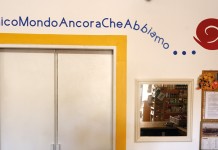Il premio Nobel per la letteratura assegnato a Bob Dylan fa discutere ma l’immagine e le parole del cantautore sono indelebili nel cuore di tutti
Diciamoci la verità, ognuno ha un suo Bob Dylan preferito. I nostalgici degli anni ’60 hanno ancora l’immaginetta appuntata al petto con le più celebri canzoni, adottate come inni pacifisti ed ecologisti dal movimento per i diritti civili.
Gli amanti del rock classico, quello tutto chitarre, batteria e sudore, hanno impresse nel cuore le canzoni della svolta elettrica del 1965 (in pieno Newport Folk Festival, dove i puristi più intransigenti del folk-solo-chitarra-acustica-e-armonica-a-bocca lo costrinsero ad abbandonare il palco), che riscattò il rock & roll dalle imitazioni all’infinito di Elvis, per aprigli nuove strade.
Quelli che erano giovani negli anni ’90 e che si trastullavano squarciandosi la gola e grattandosi le mani sulle chitarre elettriche avranno ripetuto almeno qualche centinaio di volte “Knock, knock, knockin’on heaven’s door”, pensando che fosse un pezzo di Slash e dei Guns’n’Roses.
Bob Dylan ha attraversato cinquant’anni di storia della musica, lasciando ovunque tracce della sua presenza. Ma Dylan, in realtà, è sempre stato sfuggente e inafferrabile. A cominciare proprio da quei “mitici” anni ’60, quando abbandonò la canzone di protesta passando da inni libertari come “Blowin’ in the wind” all’esistenzialismo febbricitante di “Like a rolling stone”.
Il mio personale Bob Dylan l’ho incontrato nel 1983 quando ho ascoltato per la prima volta “Jokerman”, sontuosa ballata rock che per quasi sei minuti riversa parole trascinate dall’inimitabile voce sgraziata e abrasiva come carta vetrata, inanellando una serie di immagini biblico-oniriche degne di un Rimbaud in vena di ebbrezza.
Immancabile la proverbiale armonica a bocca sul finale, quasi a ricordarci che è pur sempre lui il re dei cantastorie. Ma a questa galleria di ricordi se ne dovrà aggiungere uno tutto nuovo: quello relativo al 13 ottobre 2016, data in cui viene assegnato a Dylan il premio Nobel per la letteratura.
Inutile dire che questo riconoscimento ha lasciato sbigottiti molti, sia fra i letterati che tra i Dylaniani più osservanti.
Cosa c’entra Bob Dylan con la letteratura? E le canzoni con la poesia? Quando qualcuno afferma che le canzoni sono poesia, subito c’è chi obbietta che la vera poesia non ha bisogno della musica, mentre i testi delle canzoni da soli non reggono. Questione infinita…
Il Nobel però potrebbe avere messo un punto conclusivo: le parole scritte che lasciano il segno hanno la stessa dignità, qualunque sia il veicolo che le porta al pubblico. Basta che raccontino una storia, e che la raccontino bene.
La motivazione dell’attribuzione del Nobel a Dylan parla chiaro: «Per avere creato una nuova espressione poetica nell’ambito della tradizione della grande canzone americana» e riceve la piena approvazione anche dal New York Times: «Il Nobel stabilisce ciò che per molto tempo abbiamo percepito: il signor Dylan è tra le voci più autentiche che l’America abbia mai prodotto, un creatore di immagini audaci e risonanti al pari di Walt Whitman e Emily Dickinson».
Forse il vero quesito è perché il premio sia arrivato solo adesso, a cinquant’anni dai suoi testi più celebri e immortali. Può darsi, come qualche scrittore “puro” ha maliziosamente dichiarato, che sia una sorta di pegno pagato alla nostalgia del “Ma ti ricordi come era bello ai nostri tempi?” con cui una generazione ormai in là negli anni ha voluto nobilitare le proprie radici.
Potrebbe anche essere. Ma, quello che conta davvero sono le sue parole che ancora “soffiano nel vento”. Potranno convincere o meno, tanto quanto diverse e contrastanti sono le immagini del menestrello originario di Duluth, Minnesota, partito giovanissimo per New York per conoscere Woody Guthrie e destinato a cambiare la storia della musica.
E non solo di quella, a quanto pare. In definitiva ognuno ha il Bob Dylan che si merita.
Stefano Cucchi
A modern minstrel at the king’s court. The Nobel Prize for literature awarded to Bob Dylan is matter of discussion but the image and words of the singer-songwriter are indelible in everyone’s heart
The truth is that everyone has their favourite Bob Dylan. The nostalgics of the ‘60s still have his image pinned on their shirts with the most famous songs, adopted as pacifist and ecologist paeans by the civil rights movement.
The lovers of classic rock, the one all guitars, drums, and sweat, have impressed in their heart the songs of the electric evolution of 1965 (in full Newport Folk Festival, where the most uncompromising purists of folk-only-acoustic guitar-and-harmonica forced him to leave the stage), which redeemed rock & roll from the infinite imitations of Elvis, to open new ways for it.
Those who were young in the ’90s and amusing themselves slashing their throats and scratching their hands on electric guitars must have played “Knock, knock, knockin’ on heaven’s door” hundreds of times, thinking it was a piece by Slash and Guns’n’Roses.
Bob Dylan has crossed fifty years of music history, leaving traces of his presence everywhere; but actually Dylan has always been secretive and elusive. Starting from the “mythical” ’60s, when he abandoned the protest song passing from libertarian paeans such as “Blowin’ in the wind” to the feverish existentialism of “Like a rolling stone”.
I met my personal Bob Dylan in 1983 when I, for the first time, listened to “Jokerman”, a sumptuous rock ballad that for almost six minutes pours out words sung by the incomparable grating and abrasive voice, making a series of biblical-oneiric images worthy of a Rimbaud in an intoxicated mood.
Unfailing is the proverbial harmonica at the end, as if to remind us that he is the king of storytellers. To this collection of memories we must add a brand new one, the one relative to 13 October 2016, date on which the Nobel Prize for literature has been granted to Bob Dylan. Needless to say that this award has caused great astonishment both among men of letters and among the most observant Dylan fans.
What is the link between Bob Dylan and literature? And the one between songs and poetry? When someone says that songs are poetry, there is always someone else saying that real poetry does not need music, while the texts of the songs cannot exist without music. An endless issue…
The Nobel Prize could have brought all this to an end; the written words that leave a mark, have the same dignity, whatever is the vehicle by which they arrive to the audience.
The important thing is that they narrate a story, and narrate it well. The motivation for the assignment of the Nobel Prize to Bob Dylan is clear: «For having created new poetic expressions within the great American song tradition» and receives full approval also by the New York Times: «The Nobel establishes what for a long time we have perceived: Mr. Dylan is among the most authentic that America has ever produced, a creator of bold images and sounding like Walt Whitman and Emily Dickinson».
Maybe the real question is why the prize arrived so late, fifty years after the publication of his most famous and “immortal” texts.
Probably, as some “pure” writer has maliciously said, it is a sort of pledge for the nostalgia of “The good old days” of a generation that after so many years wanted to dignify its own roots. However, what really counts are the still “Blowin’ in the wind” words.
Different points of view, just like different and contrasting are the images of the “minstrel” from Duluth, Minnesota, who went to New York when he was very young to meet Woody Guthrie and whose destiny was to change the history of the music, and much more.
Traduzione in inglese a opera di ViceVersa Group













































